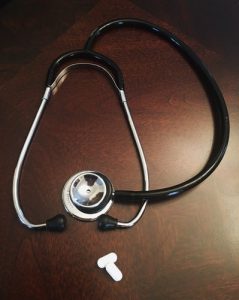FEATURED ARTICLES
- Details
- Written by Lisa Jillanza
You have seen people drinking it on the subway, in the elevator, at the gym and maybe even in those posh cafés and grills, but what's the big deal about coconut water? Well, that's easy, coconut water is incredibly healthy and one of the best drinks to hydrate the body. And besides aiding in digestion and helping to remove harmful toxins from your body, coconuts have anti-viral, anti-microbial, AND anti-fungal properties that can help cure disease!
Coconut water is low in carbohydrates, low in sugars and is 99 % fat free. Many nutritionists are calling coconut water the “sports energy drink” of today's day and age because it is naturally good for you and full of the vitamins we need to ward off fatigue.

When compared to sports drinks, coconut water:
- Contains more potassium, about 294 mg.
- Has less sodium, at about 25 mg.
- Has 5 mg of natural sugars.
- Is very high in chloride at 118 mg.
(Data based on a 100 ml size drink.)
Because coconut water contains organic compounds possessing healthy growth promoting properties, drinking it has been known to help the following:
- Raise your metabolism.
- Boost your immune system.
- Promote weight loss.
- Keep the body cool and at the proper temperature.
- Carry nutrients and oxygen to cells.
- Naturally replenish your body's fluids after exercising.
- Detoxify and fight viruses.
- Boost poor circulation.
- Control diabetes.
- Cleanse your digestive tract.
- Treat kidney and urethral stones.
- Balance your pH and reduce your risk of cancer.
- Aid your body in fighting viruses that cause the flu, herpes and AIDS.
- Orally hydrate your body; it is an all-natural isotonic beverage.
- Details
- Written by Lisa Jillanza
There are so many reasons why you may have a sore throat : it could be the onset of a cold, or it could be something more serious like strep throat : but regardless you just want the burning, itching and painful feeling to go away.
While many people turn to the doctor to help get some relief from a nagging sore throat, some of the best remedies can be found at home or over-the-counter. Here are some remedies and quick fixes for your next sore throat:

- Anti-inflammatory medicines : Believe it or not you probably already have some of these in your medicine cabinets for a host of other reasons. Over-the-counter, non-steroidal anti-inflammatory drugs like Aleve and Advil are combination pain killers and reduce some of the swelling associated with a sore throat.
- Saltwater gargle : You may have seen your parents or grandparents doing this a time or two, as this old home remedy has been around for quite some time. Doctors recommend dissolving a teaspoon of salt in a cup of water and gargling with it several times a day to reduce swelling and loosen mucus.
- Sprays and lozenges : Sucking on a lozenge or using a throat spray may help alleviate sore throat symptoms because these products help to stimulate saliva production. For an added benefit choose brands that have menthol or eucalyptus for the cooling and numbing effect.
- Cough syrup : Just like lozenges and sprays, cough medicine help to coat the throat and provide temporary pain relief. Even if you aren't experiencing a cough, it's still ok to try using cough medicine to help ease the soreness.
- Lots of fluids : As with any sickness, it's important to drink plenty of fluids when you have a sore throat, too. You should be drinking enough water that your urine is light yellow or clear. If it is not, then you are not taking in enough fluids. Water is always your best options, but you can also hydrate with watered-down fruit drinks, or something salty if you prefer like chicken broth.
- Rest : While it may not be the quickest way to alleviate the pain, it is an effective way to battle any infection, including a sore throat.
- Details
- Written by Lisa Jillanza
We have all been there a million times, checking the clock every few minutes and telling yourself that you NEED to fall asleep that very second or else tomorrow is going to be a super long day! But what typically happens? We have a terrible time falling asleep when we are under pressure of having to fall asleep!

According to scientists, this condition is called psychophysiological insomnia and feeling pressure to fall asleep causes fragmented sleep and worsened sleep quality.
Psychophysiological insomnia affects nearly 15% of all chronic insomnia patients, and while you can't make yourself fall asleep exactly when you want to, there are some things you can do to help your cause.
Instead of having negative thoughts like “I'm going to be worthless tomorrow if I don't fall asleep now,” tell yourself “I've had sleeping problems before and have been able to function.”
Another suggestion from insomnia researchers is to delay your bedtime until you are truly sleepy, instead of when you think you should be in bed.
They also suggest having a bedtime snack like cheese and crackers or cottage cheese, to combine complex carbohydrates with tryptophan to help you sleep.
Lastly, don't be a clock watcher as this will only give you more anxiety. Instead turn your clock around so that you cannot see what time it is during the night.
- Details
- Written by Lisa Jillanza
Been to a gym lately that offers spinning/cycling classes and wonder what it's all about? Spinning classes are rising in popularity as they provide an excellent alternative to the “same old” exercise routines.

According to www.aboutaerobics.com, indoor cycling began in 1989 and has endured as a popular exercise routine. Classes are usually held in the aerobics section of gyms and last between 30 and 60 minutes.
Spinning can burn 500 calories or more in a short amount of time and, believe it or not, is actually a low impact activity for all ages.
Many assume that the class is just like riding a bike : without actually going anywhere. But spinning actually involves jumps, hills, jogs, runs and other moves that are performed on the bike by either moving your body position and/or adjusting the resistance : or tension : of the bike.
Spinning does take some getting used to. Experts and instructors will warn you that, as beginners, you will encounter soreness in various places on your body.
Many serious spinners purchase padded seats and special shoes to eliminate any discomfort that might come from the bike.
Take it easy at first : try a beginner's class or incorporate it once or twice a week into your workout routine. Mix in other forms of exercise such as yoga, weight training and swimming with your spinning routine.
Remember, the first few classes will be uncomfortable, but the benefits of this unique exercise are worth the adjustment!
- Details
- Written by Lisa Jillanza
- The beta-carotene in carrots is an antioxidant combating the free radicals that contribute to conditions like cancer, heart disease, and a few other conditions.
- Cooking carrots actually raises the nutritional benefits of this great vegetable. By cooking them you free the beta-carotene from the fiber, thereby allowing your body to better absorb the beta-carotene.
- If you eat just a half cup of carrots each day you will get more than the recommended dosage of beta-carotene in your diet.

Recipe: Banana Zucchini Carrot Bread
2 cups flour
1 teaspoon vanilla
1 extra large egg
1 cup sugar
3 medium bananas
1 cup chopped zucchini
½ cup grated carrots
1/3 cup butter
1 teaspoon baking soda
1 dash salt
Preheat oven to 350 degrees. Melt butter and pour into large bowl. Add bananas and mash. Add grated zucchini and shredded carrots. Mix well.
Add sugar, vanilla and beaten egg. Sprinkle in baking soda and salt, and mix. Add flour and mix well. Pour in 4x8 loaf pan to two large muffin pans. (Yields one loaf or 12 large muffins.)
Bake loaf for 60 to 75 minutes. Bake muffins for approximately 20 to 30 minutes.
Let cool and serve.
Recipe: Creamy Carrot with Curry Soup
2 tablespoons olive oil
1 ½ pounds peeled carrots, cut into 1-inch chunks
1 large onion, diced
1 tablespoon butter
1 pinch salt
3 large garlic cloves, thickly sliced
2 tablespoons curry powder
3 cups chicken broth
1 ½ cups half-and-half (or whole milk)
Salt and freshly ground pepper, to taste
Garnish: Chopped pistachios
Heat oil in sauté pan until shimmering. Add carrots, then onion, sauté until golden brown (about 7 minutes). Reduce heat and add butter, sugar, and garlic; continue cooking about 10 minutes longer. Add curry and sauté a minute longer. Add broth and simmer. Reduce heat and simmer until carrots are soft, about 10 minutes. Using a blender, puree in a blender for about a minute. Return to pot and add enough half and half so the mixture is soup-like, yet thick enough to float the pistachio garnish. Add salt and pepper as needed.

